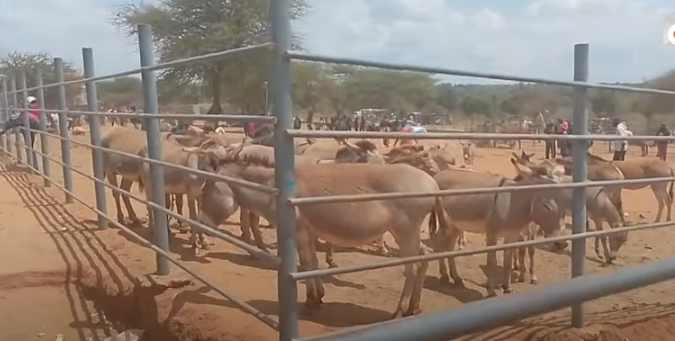- The breathtaking landscapes of Amboseli National Park, the majestic Kyulu Hills, and the hidden gem of Nyiri Desert are among Southern Kenya’s most captivating attractions.
- Scenic drives down Magadi Road or the Nairobi-Namanga Highway easily rank among the top weekend road trip choices for Kenyans.
- However, a growing wave of illicit operations in the Kajiado-Namanga region has sent shockwaves across Kenya, exposing a deepening crisis in law enforcement and border security.
- From illegal drug labs to illegal charcoal burning, and booming illicit donkey meat trade, the area has become a hotbed of criminal enterprises operating in the shadows.
Kenyan Media House Uncovers Trans-National Donkey Meat Trade
The southern county of Kajiado has garnered nationwide attention in the past 4 months following a series of exposed criminal activities within its sprawling wilderness.
In December 2024, Citizen TV aired the findings of a months-long investigation into illegal donkey slaughterhouses hidden in the remote area of Ewaso Kedong.
The chilling prime-time news report sent shockwaves through Nairobi, as many residents feared they had unknowingly consumed donkey meat.
It was reported as a coordinated operation involving the three East African countries of Kenya, Uganda, and Tanzania.
According to the media house, frequent caravans featuring hundreds of animals streamed in from Uganda and Tanzania, converging in Kenya’s Kajiado county for slaughter and sale.
While locals feast on the meat, hides and skins are separately processed for export to foreign countries.
Donkeys from Tanzania are driven in trucks or herded on foot to an open-air animal market in the busy Bisil commercial area in Kajiado.
The donkeys mingle with livestock from the local Maasai community, before linking up with more donkeys from Uganda.
Ugandan animals transit through Eldoret, Bomet (Mulot), Kisii, Narok, and Nairobi, before being lined up for slaughter in Kajiado.
The slaughter is a highly-guarded night-time activity, deep in the bushes of the largely remote county of Kajiado.
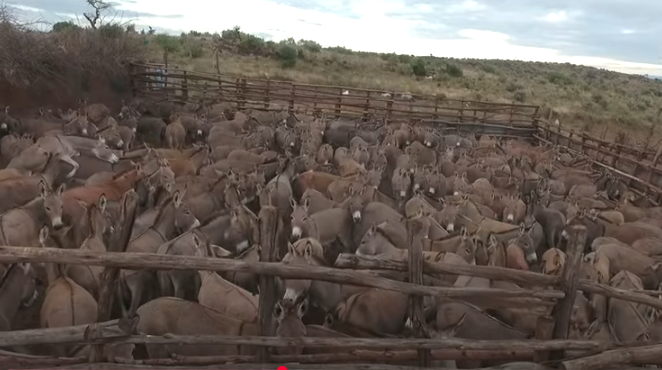
Inside Kajiado’s Illegal Bush Donkey Abattoir Industry
Adventure films in this part of the country show the difficulty in navigating the terrain, making it an excellent choice for ambitious operatives who wish to stay hidden.
After branching off the narrow Magadi Road or the well-paved Namanga Road, the landscape offers very little in the way of a road network, aside from narrow, winding trails carved by grazing cattle.
A heavily guarded lab lies concealed deep within the dense brush, patrolled by armed night sentries and inaccessible by any marked path.
Inside, butchers are slaughtering donkeys en masse, wiping huge numbers of donkeys off the planet.
And despite the trade being illegal for years, audacious traders buy live animals and export donkey products to Western countries.
The final station in this illicit value chain is in the neighboring Machakos County, where an allegedly licensed slaughterhouse processes donkey hides for export.
Despite claiming legitimacy, the slaughterhouse crew, visibly unsettled by media and police presence, attempted to bribe them to leave.
Footage from the scene showed piles of donkey skin strewn all over, with an in-house trench soaked in fresh blood.
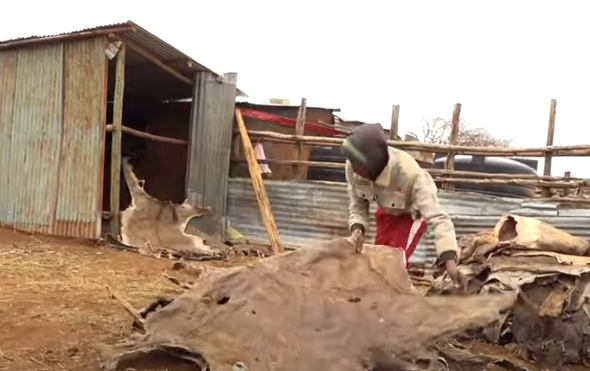
Charcoal Burners Flee TV Cameras in Kajiado
Hot in the heels of the donkey dealers were reports of illegal charcoal burning a few kilometers away.
The media again landed a major scoop on illicit activity in the area, this time involving government officials.
Journalists rolled into the Kikesen River Conservancy at Bisil in Kajiado, looking to expose the trade that continues to deplete Indigenous trees in the area.
Feeble-looking charcoal burners could be seen hastily walking away, leaving their tools of trade, notes, and other personal belongings for scrutiny by the media.
The notes revealed intimate operational details, including the amounts of food consumed in the remote makeshift residences, along with dates and bribes paid to senior officials to facilitate the charcoal trade.
Locals interviewed shifted the blame to connected land-owners who ferry in non-locals to take down trees and make the charcoals.
With several charcoal kilns bellowing with smoke in the background, one charcoal burner from Western Kenya spoke to the media.
He admitted to participating in the illegal activity, citing poverty and debt as reasons.
From the bushes, sacks of charcoal are transported at night to a major depot in Bisil before landing at the market in Nairobi and Isinya.
Along the way, massive bribery and trickery are used to evade numerous roadblocks mounted by police.
Packed on motorbikes, in Toyota Proboxes, and tinted Nissan vehicles marked “Private,” charcoal makes its way to Nairobi City, Isinya, and Kitengela among other neighboring towns.
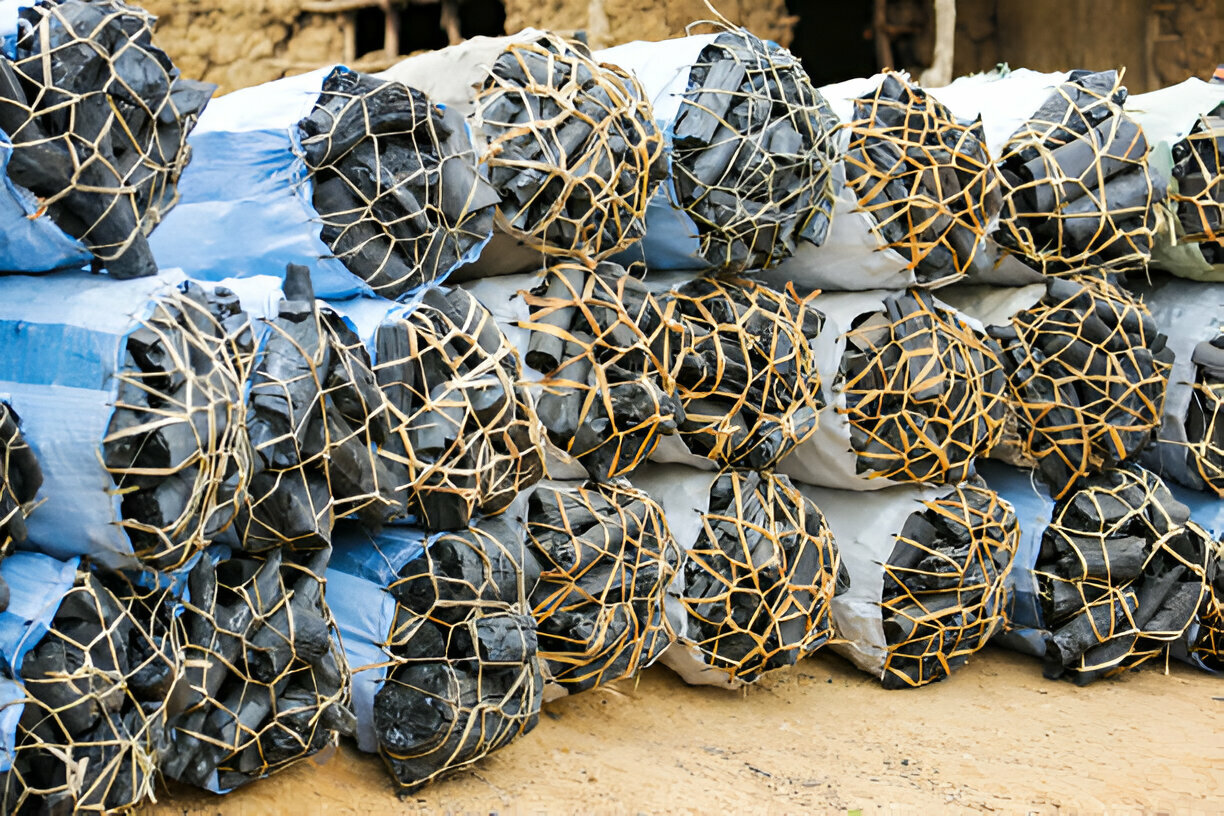
Local Kenya Wildlife Service (KWS) officers express their disappointment with the criminal justice system, citing uncooperative prosecutors and lenient court punishment.
In addition to the common one-month community service sentences, most offenders are likely to run away from the court-imposed punishments since they are non-locals.
“This month, we arrested several people burning charcoal here, and when we took them to custody and drafted charges, the prosecutor declined to charge them, demanding that we produce the farm owner,” said Deputy Director of KWS Kajiado Francis Mbaka on the legal loopholes.
Namanga Poultry Farm Converted to a Meth Lab in Disastrous Business Plan
Kajiado does not seem to be getting a break anytime soon as it continues dominating the headlines for the wrong reasons.
The latest fiasco surrounds two corrugated iron-sheet structures in the middle of nowhere that have been identified as methamphetamine drug labs.
Methamphetamine is a powerful central nervous system stimulant that is mainly used as a recreational or performance-enhancing drug.
Reports indicate that the drug is considered more powerful than both Cocaine and Heroin, making users stay high for 4-6 hours.
Events unfolding at the scene in Namanga mirror the script of the popular TV show Breaking Bad, where Walter White and his apprentice Jesse Pinkman operate in a mobile meth lab mounted on a spacious Recreational Vehicle (RV).
A document titled International Narcotics Control Strategy produced by America’s State Department last year established that the operation is linked to the Cartel de Jalisco Nueva Generación (CJNG) drug cartel in Mexico.
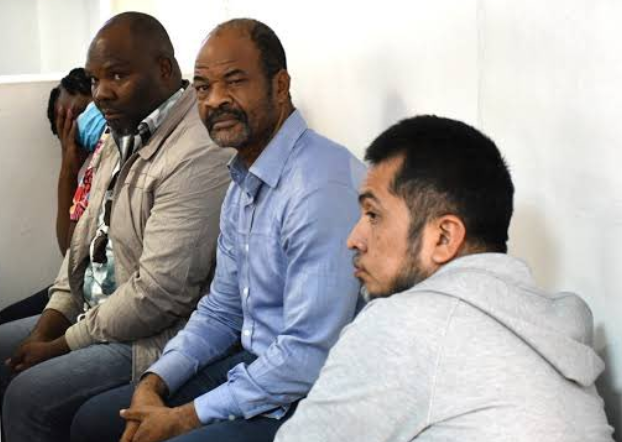
Cartel De Namanga
Located just 6 kilometers from the Namanga one-stop border post, the property was allegedly purchased by suspect Betty Mukami with an accomplice named Francis Gachau.
Betty completed the purchase after duping locals with a fake explanation about starting a poultry farming project on the land.
Ms. Mukami was picked by the police at her Ruiru home in a string of arrests that have seen her Nigerian and Mexican collaborators also nabbed.
Nigerian brothers Egwu Ogba Mba and Ojukwu Awu have been arrested, with Ojukuwu identified as the operation’s mastermind.
The Mexican operative named Alvarado Israel Vera was also arrested at JKIA airport as he tried to flee the country.
These and other criminals in India, Gabon, and Nigeria, among other countries, are said to be reporting to the cited Mexican cartel.
Media cameras captured more than a dozen jerricans filled with chemical ingredients, along with a generator and a solar panel at the compound, —now an active crime scene.
While the Directorate of Criminal Investigations (DCI) insists that the production had not started, Kenyans question why DCI acted only after a US report.
It remains unclear for how long the operation was in place before the massive drug bust in September 2024.
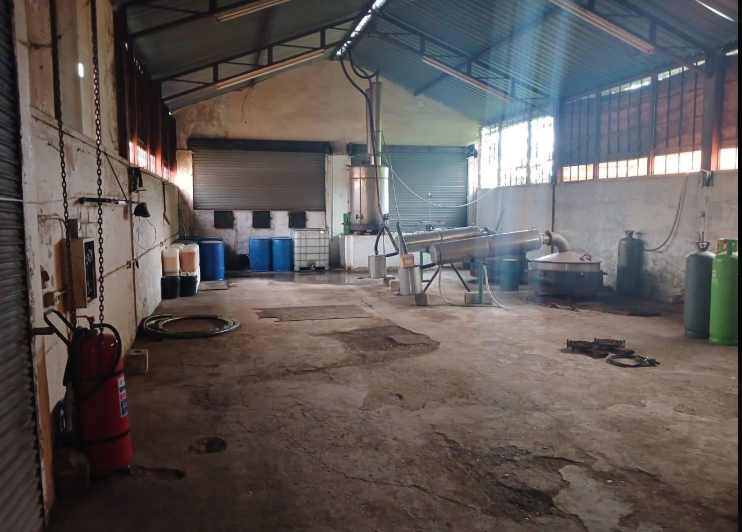
Kenya has increasingly become a hub for transnational crime, serving as a critical link in illicit networks spanning Africa, Asia, and beyond.
Its strategic location along the East African coast, coupled with porous borders and vast unsecured areas, has made it a hotspot for drug trafficking, human smuggling, wildlife poaching, and counterfeit goods trade.
The recent surge in criminal activity, coupled with the infiltration of Mexican drug cartels, marks a troubling decline in the country’s security.
It is equally concerning to see the government in a reactive stance, scrambling to eliminate both local and foreign criminal networks rather than staying ahead of the threat.

